Have you noticed that your cat's mouth smells unpleasant?
Bad breath in cats can be embarrassing and worrying, especially if you don't know what the cause is.
A simple home remedy that can help is a mix of coconut oil and mint, as coconut oil has antibacterial properties and mint freshens breath.
In this blog post, you will learn more about the causes of bad breath in cats, how to diagnose it, treat it and prevent it with home remedies and suitable food recommendations.
Understanding the Causes of Bad Breath in Cats

Bad breath in cats can have a variety of causes, ranging from simple to complex health problems. Dental problems such as tartar or gingivitis are often the culprit. These problems arise from the buildup of bacteria and food particles in your cat's mouth, which lead to plaque and eventually tartar. But it's not just teeth that can play a role - your cat's diet can also play a role. Certain foods can affect the smell or even lead to digestive problems that cause bad breath.
In addition to the most common causes such as dental problems and dietary issues, there are also more serious health conditions that can cause bad breath. These include diseases such as diabetes mellitus , kidney or liver disease, which can lead to an unusual bad breath. For example, a sweet smell of bad breath can be an indication of diabetes, while an odor reminiscent of ammonia could indicate kidney disease. It is important that such conditions are detected and treated early to protect your cat's health.
Diagnosis of bad breath in cats

Diagnosis of bad breath in cats often begins with a thorough examination of the mouth by the veterinarian, paying particular attention to signs such as tartar, inflamed gums or damaged teeth. Further tests may include:
- Blood tests to rule out systemic diseases such as diabetes or kidney problems
- X-rays to assess the condition of the teeth and jawbone
- Special tests such as ultrasound or endoscopy if gastrointestinal diseases are suspected
therapeutic approaches for bad breath

The treatment of bad breath in cats depends largely on the underlying cause. If there are dental problems, a professional dental cleaning or even dental rehabilitation may be necessary. If a systemic disease such as diabetes or kidney failure is the cause, specific medical treatments must be initiated. In any case, adjusting the diet is often helpful to relieve symptoms and support the cat's health. This can include using special diet food that is tailored to your cat's needs.
Prevention of bad breath in cats

Bad breath in cats is not only unpleasant, but can also be a sign of health problems. To prevent bad breath, it is important to check and care for your cat's teeth regularly . This includes brushing with a toothbrush and toothpaste suitable for cats. If your cat does not tolerate brushing, alternative methods such as dental care snacks or special food additives can help keep the teeth clean and prevent tartar.
In addition to dental care, it is crucial to have your cat examined by a veterinarian on a regular basis. A professional dental cleaning should be carried out once a year to detect and treat tartar and other dental problems that can cause bad breath at an early stage. By taking these preventative measures, you can not only avoid bad breath, but also promote your cat's general health and well-being.
Home Remedies for Bad Breath in Cats

There are some simple home remedies that can help combat bad breath in cats. For example, offering cat grass regularly can help as it supports the digestive system and helps to clean the teeth naturally. Catnip sticks are also popular as they not only help clean teeth but can also promote your cat's well-being.
Another effective home remedy is using coconut oil . This oil has antibacterial properties that can help reduce harmful bacteria in your cat's mouth. Simply apply a little coconut oil to your cat's teeth or mix it with their food. Make sure you use natural, unprocessed coconut oil for the best results.
Food recommendations for fresh breath

Choosing the right food can be crucial to preventing or minimizing bad breath in your cat. It is important that the cat food contains high-quality ingredients and is free of sugar and unnecessary fillers. Here are some tips on how to choose the right food:
- High-quality protein : Choose cat food that is rich in high-quality protein. This will not only support your cat's overall health, but will also help keep the oral cavity healthy.
- Avoid sugar and grains : These ingredients can contribute to plaque buildup and promote bad breath.
- Dry food and wet food : Dry food can help scrape plaque from your cat's teeth, while wet food is often better for overall hydration and wellness. A combination of both may be ideal.
When is a visit to the vet necessary because of bad breath?
A visit to the vet is recommended if your cat's bad breath persists or is particularly severe, and if it is accompanied by other symptoms such as loss of appetite, weight loss, or vomiting. These signs can indicate more serious health problems that go beyond simple dental problems. Here are some situations in which you should definitely see a vet:
- Persistent, strong bad breath : This could be a sign of dental problems or diseases of the internal organs.
- Accompanying symptoms : If bad breath is accompanied by other worrying symptoms, it is important to have it checked by a veterinarian.
- Changes in behavior : If your cat shows behavioral changes such as reduced activity or aggressiveness, this could be related to pain or discomfort.
Improve your cat's health with Flappie
Have you ever thought about how Flappie 's smart cat flap not only keeps your home clean, but also actively contributes to your cat's health? Using innovative prey detection technology, Flappie prevents your cat from bringing animals such as birds or mice into the house. This is not only hygienic, but also prevents your cat from bringing pathogens or parasites that often attach to these small prey animals into your home. Flappie also offers selective access control, ensuring that only your cat and no other unwanted animals can enter. These features go a long way in minimizing the risk of disease and promoting your cat's overall health.
The Flappie app plays a crucial role in monitoring your cat's health. You'll receive alerts when your cat tries to come home with prey and can see videos or photos captured by the smart flap. These insights into your cat's behavior can help you better understand what they're doing outside and if there are any behavioral changes that could indicate health issues. By using this technology, you can proactively monitor your cat's well-being and respond quickly if something seems unusual. Visit flappie.ch to learn more about how you can improve your cat's quality of life with Flappie .
Frequently Asked Questions
What can you do about bad breath in cats?
There are various measures you can take to combat bad breath in cats. A simple home remedy is a mix of coconut oil and mint, as coconut oil has antibacterial properties and mint freshens breath. It is also important to check and care for your cat's teeth regularly. This includes brushing with a toothbrush and toothpaste suitable for cats. If your cat does not tolerate brushing, alternative methods such as dental care snacks or special food additives can help. A professional dental cleaning by a veterinarian may also be necessary, especially if the bad breath is caused by dental problems.
Does wet food cause bad breath in cats?
The blog post mentions that both dry and wet food have their pros and cons. Wet food is often better for the cat's overall hydration and well-being, while dry food can help scrape plaque from the teeth. There is no specific mention of wet food directly causing bad breath. What is important is that the cat food contains high-quality ingredients and is free of sugar as well as unnecessary fillers.
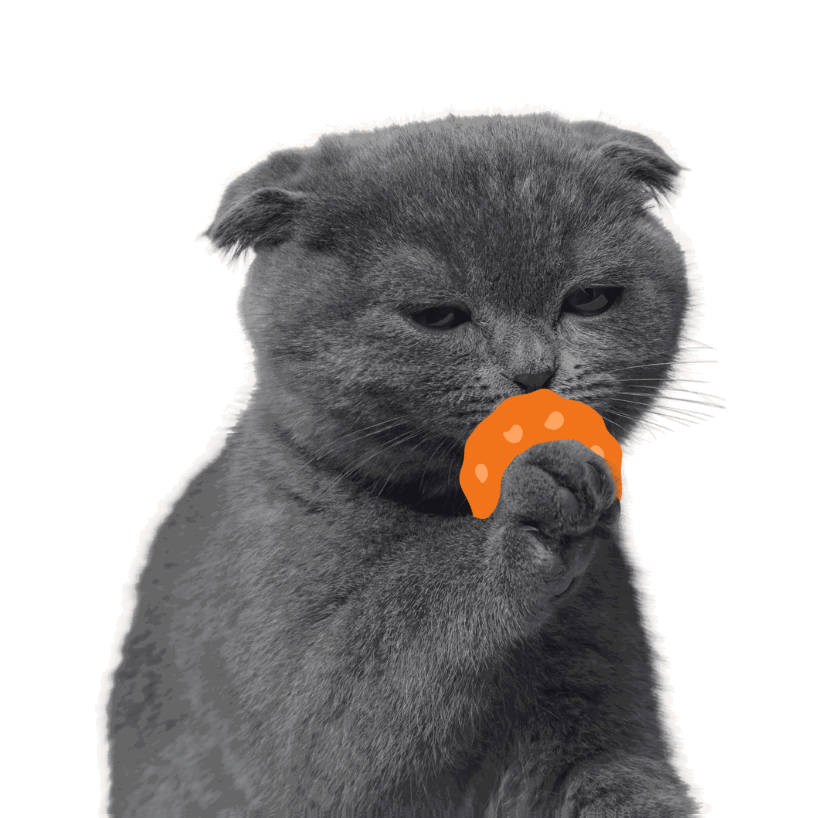
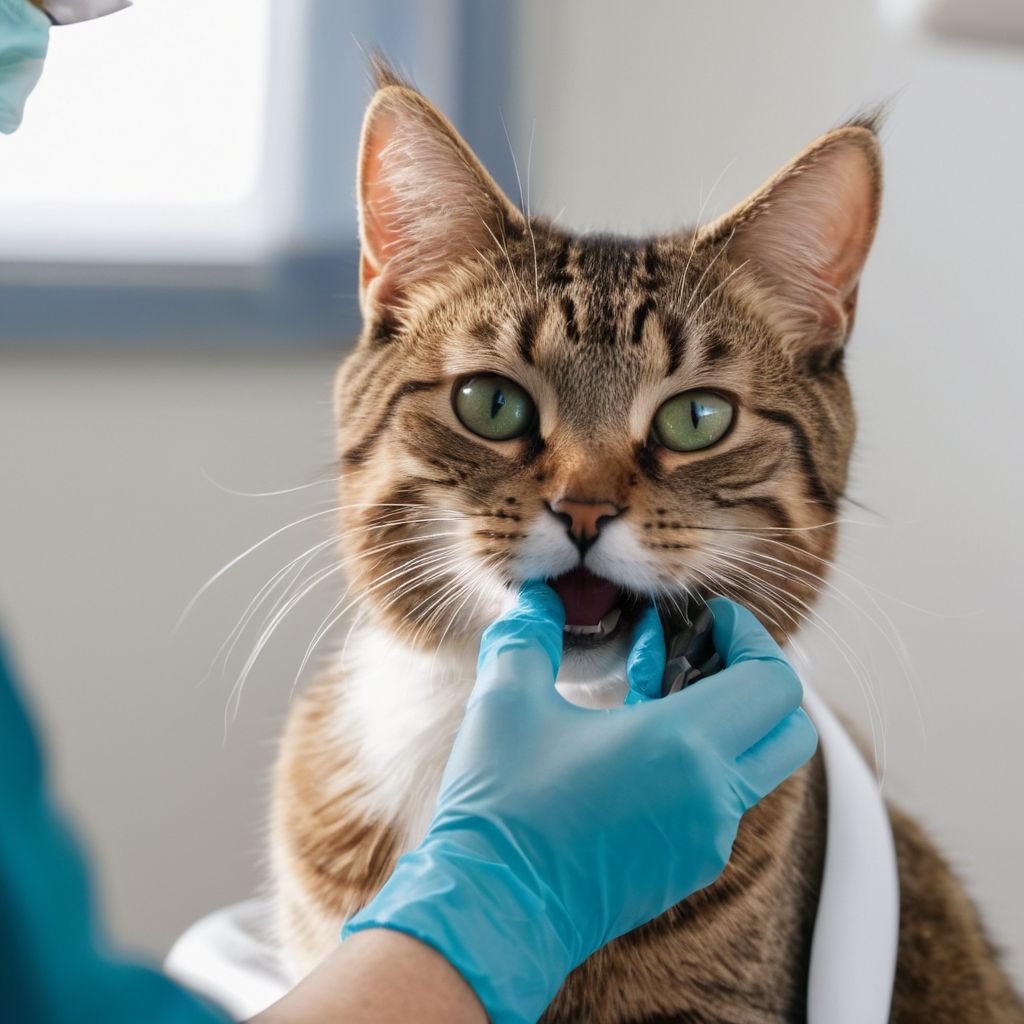
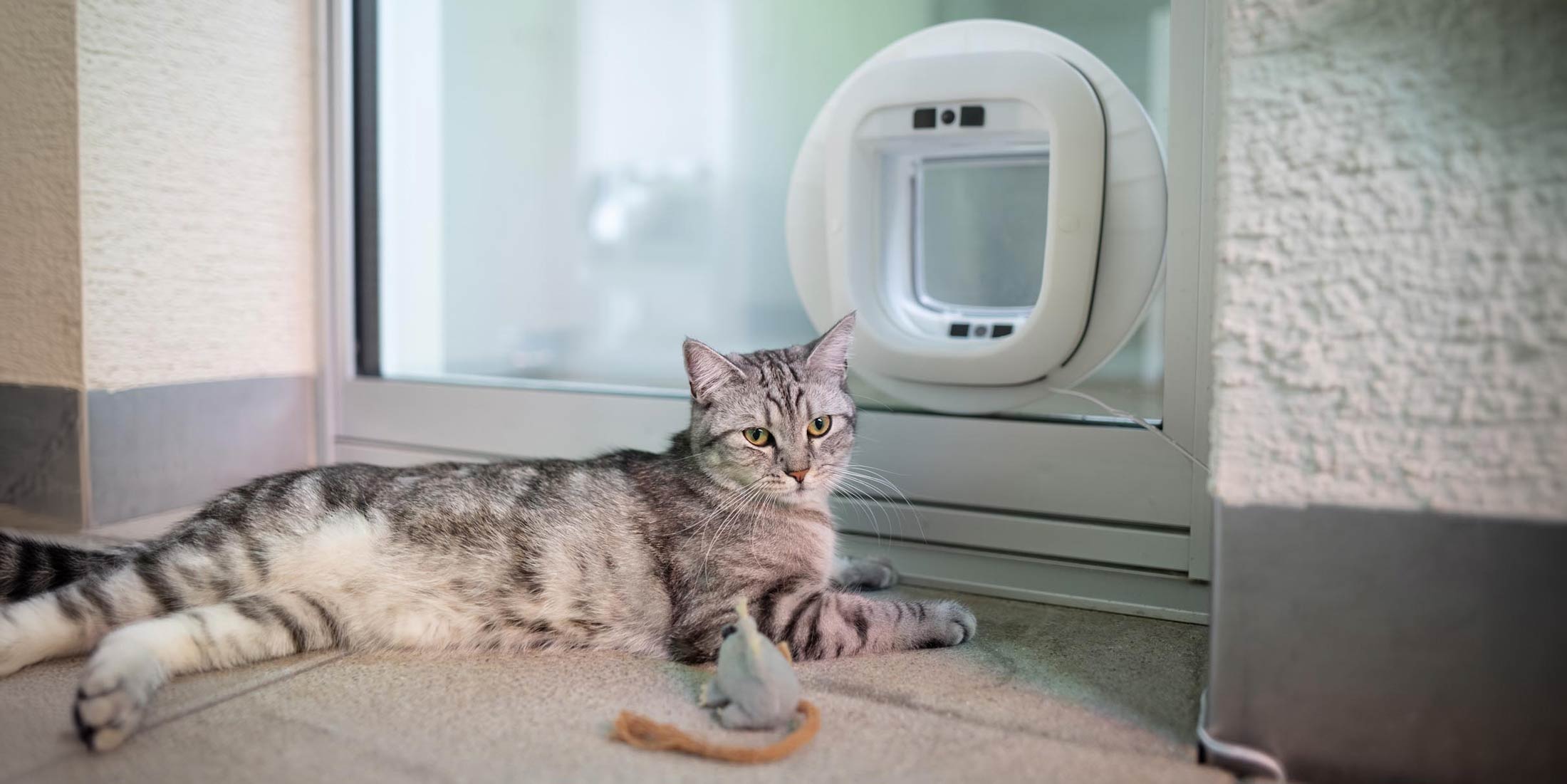
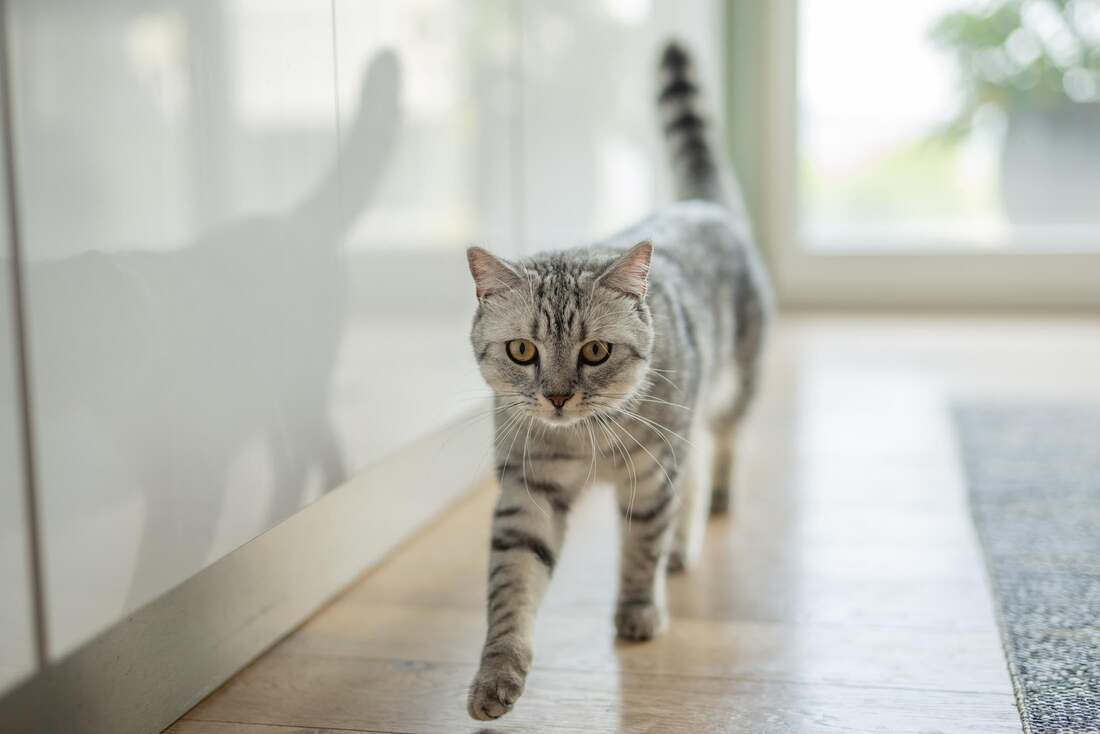
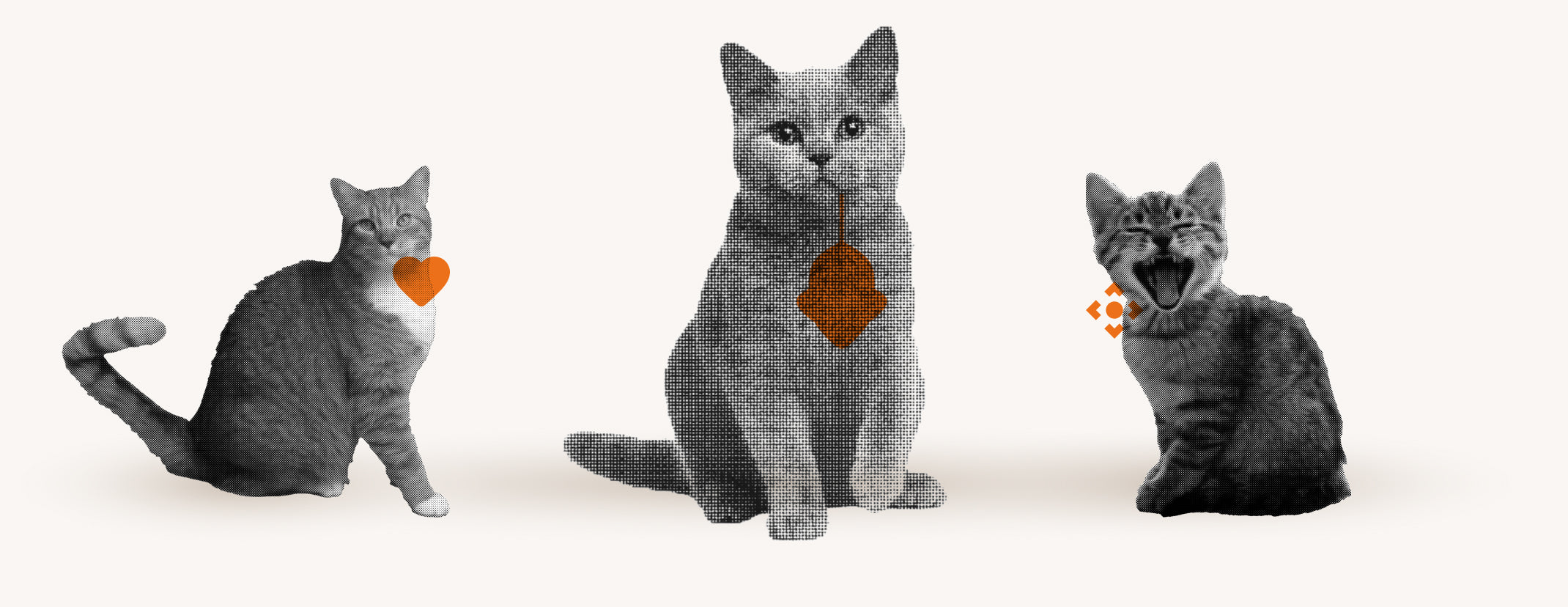
Share:
Phosphorus content of cat food CNI: Important information
Phosphorus content of cat food CNI: Important information